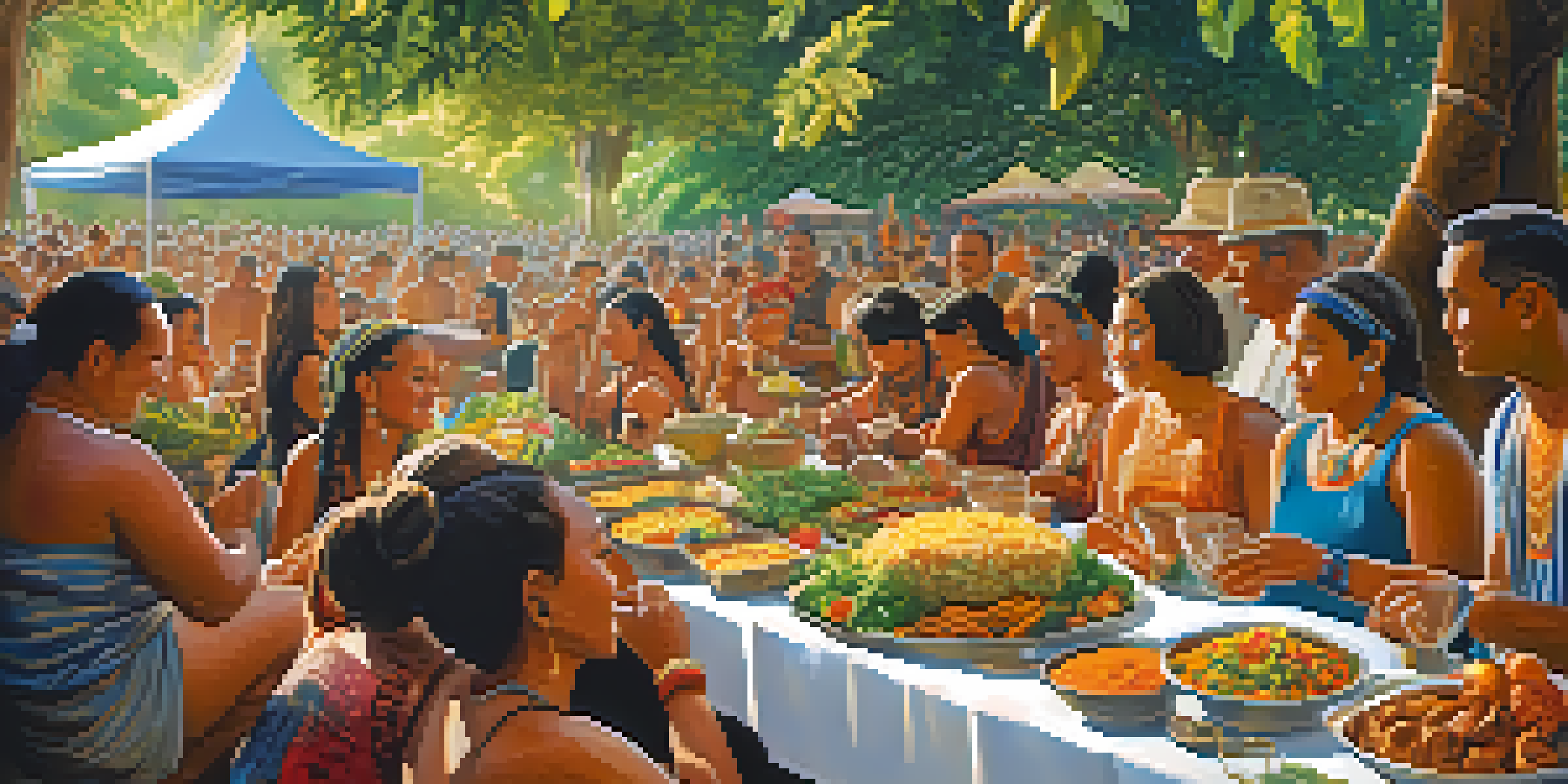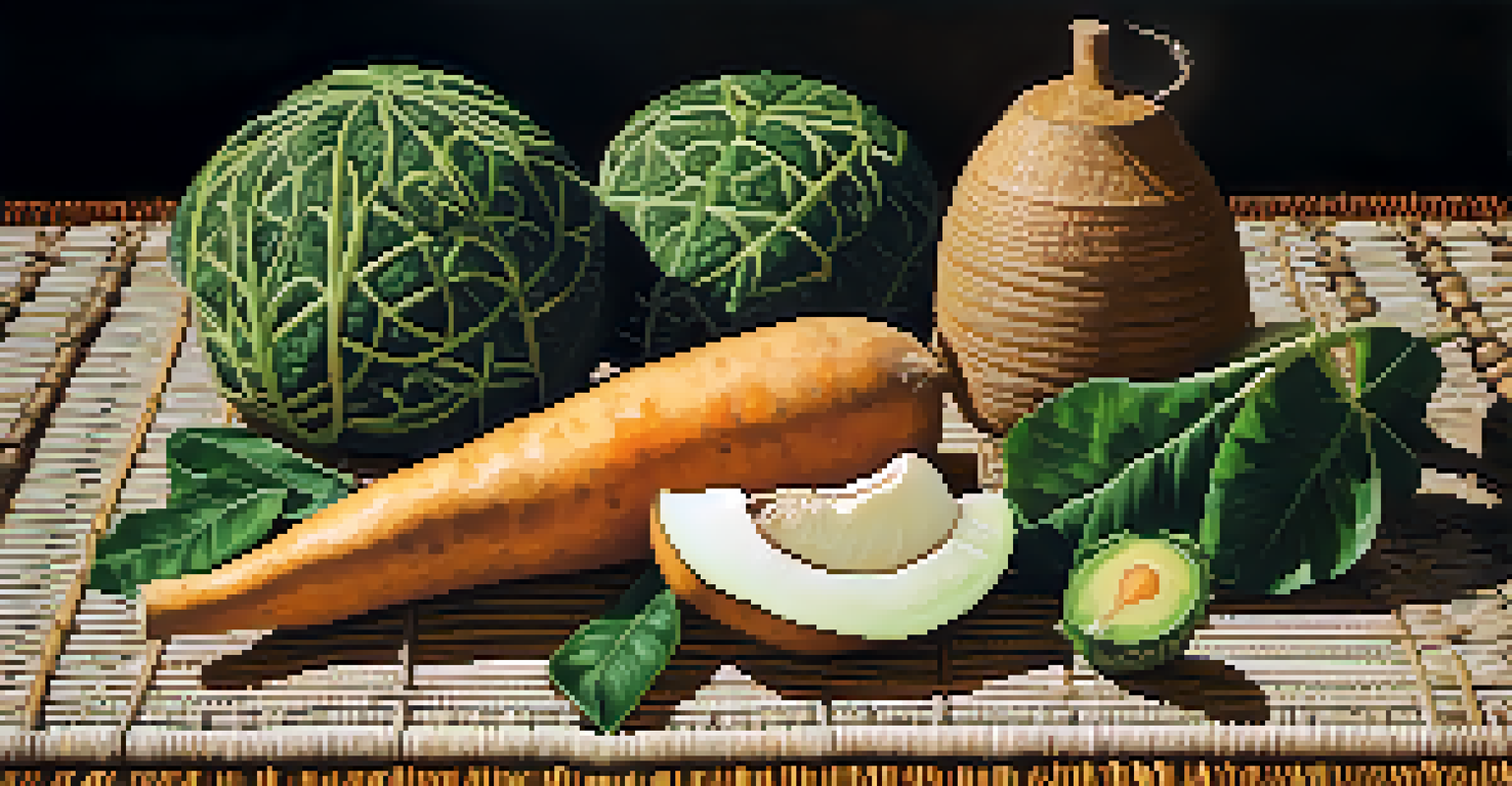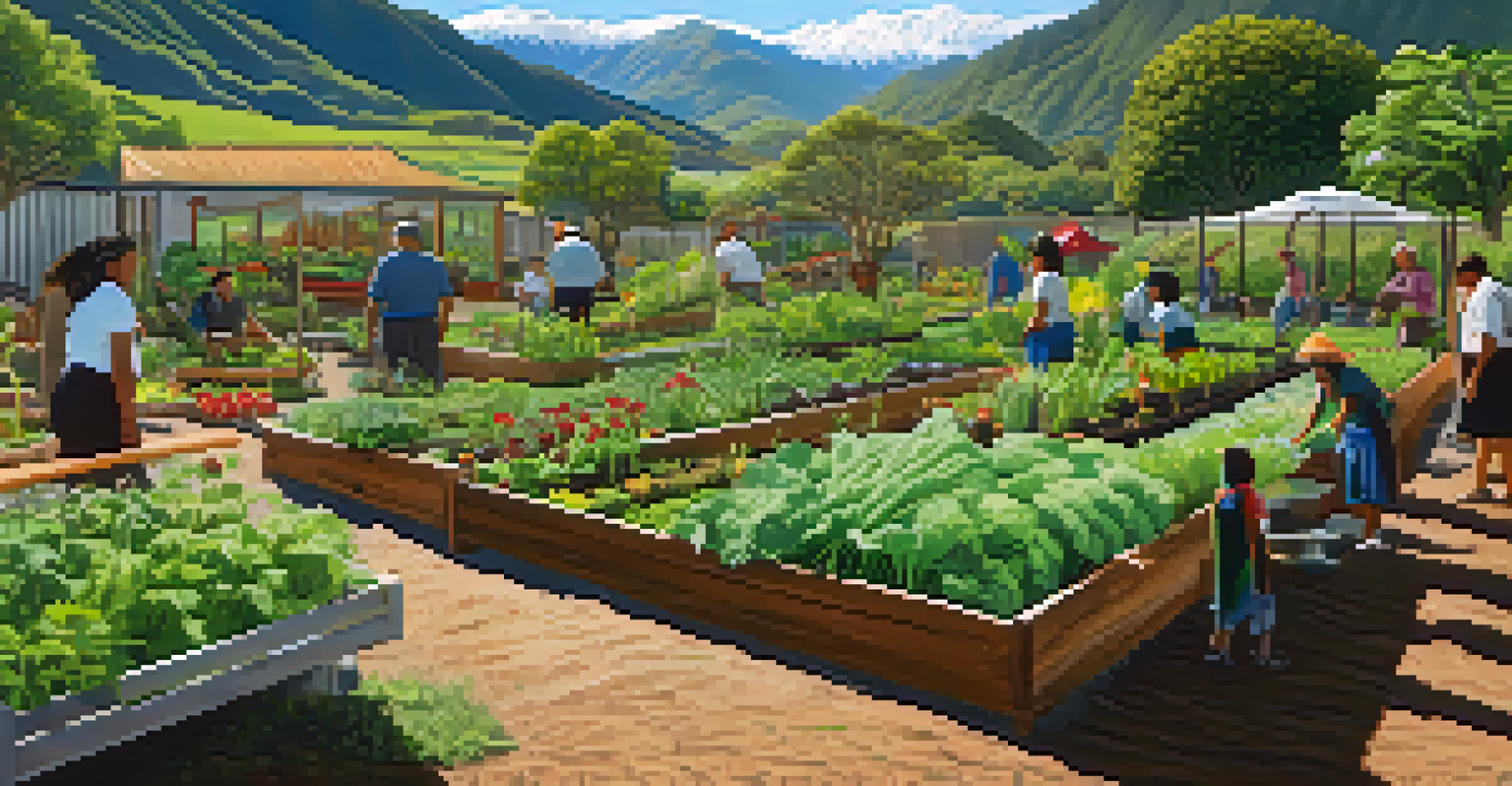The Intersection of Vegetarianism and Maori Culture in New Zealand

Understanding Maori Culture and Its Values
Maori culture is rich with traditions that emphasize respect for nature and community. Central to these values is the concept of 'kaitiakitanga,' or guardianship, which encourages sustainable practices and a deep connection to the land. This reverence for the environment naturally influences dietary choices, leading some to explore vegetarianism as a way to align their eating habits with these principles.
The land is our ancestor, the sea our mother; we are the children of nature.
In Maori culture, food is not just sustenance; it's a vital part of their identity and heritage. Traditional foods, such as kumara (sweet potato) and various greens, play an essential role in their cuisine and rituals. The emphasis on communal meals further reinforces the importance of sharing and sustainability, making vegetarianism an appealing option for those looking to embrace these values.
Moreover, the concept of mana, or spiritual power, extends to the food consumed. Choosing vegetarianism can be seen as a way to enhance mana by opting for foods that are perceived as less harmful to the ecosystem. This creates a holistic approach to wellbeing, with food choices reflecting deeper cultural ties and respect for the environment.
The Role of Traditional Maori Foods
Traditional Maori foods are deeply rooted in the landscape and seasons of New Zealand. These foods include a variety of fruits, vegetables, and plant-based ingredients that have sustained Maori communities for generations. By focusing on these traditional vegetarian options, individuals can honor their heritage while also making conscious dietary choices.

Kumara, for example, is not only a staple in Maori cuisine but also symbolizes the connection to the earth and agriculture. Its cultivation and harvesting are steeped in tradition, and it serves as a reminder of the importance of sustainable practices. Incorporating such traditional foods into a vegetarian diet can reinforce cultural identity while promoting environmental stewardship.
Maori Values Embrace Vegetarianism
The principles of kaitiakitanga and mana in Maori culture encourage sustainable and respectful dietary choices, including vegetarianism.
Additionally, foraging for native plants and herbs, such as kawakawa and puha, highlights the Maori practice of using what the land provides. This approach to food can inspire a vegetarian lifestyle that prioritizes local, seasonal ingredients, further bridging the gap between modern dietary preferences and traditional Maori practices.
Modern Vegetarianism Among Maori Communities
As global awareness of vegetarianism grows, many Maori individuals are re-evaluating their dietary habits. This shift often reflects a desire to embrace healthier lifestyles while still aligning with cultural values. The trend towards vegetarianism can be seen as a modern evolution of traditional practices that respect the land and promote sustainability.
Food is not just about sustenance; it is a vital part of our culture and identity.
In urban areas, Maori cuisine has begun to incorporate vegetarian options, showcasing the adaptability of their food culture. Restaurants and cafes featuring Maori-inspired vegetarian dishes are emerging, making it easier for both locals and visitors to experience this fusion. These establishments often celebrate traditional ingredients, presenting them in innovative ways that appeal to a broader audience.
Moreover, workshops and community initiatives aimed at promoting plant-based diets highlight the importance of education and accessibility in the vegetarian movement. By sharing knowledge about traditional foods and modern cooking techniques, Maori communities are empowering individuals to make informed dietary choices that resonate with their cultural identity.
Environmental Stewardship and Vegetarianism
The principles of environmental stewardship are deeply ingrained in Maori culture, aligning seamlessly with vegetarianism. As guardians of the land, many Maori people view vegetarianism as a way to protect natural resources and promote biodiversity. This perspective encourages a shift away from meat consumption, which is often associated with environmental degradation.
By adopting a vegetarian lifestyle, individuals can contribute to reducing their carbon footprint and supporting sustainable agricultural practices. This shift not only benefits the environment but also helps preserve traditional Maori lands and resources for future generations. It's a powerful way to marry modern dietary choices with ancient cultural practices.
Traditional Foods Inspire Modern Diets
Incorporating traditional vegetarian foods, such as kumara and native herbs, helps Maori communities honor their heritage while promoting sustainability.
Furthermore, many Maori advocates are raising awareness about the environmental impacts of food choices. Through community events and educational programs, they are inspiring others to consider the ecological footprint of their diets and promoting plant-based alternatives that honor both the environment and their cultural heritage.
Challenges and Misconceptions of Vegetarianism
Despite the appeal of vegetarianism, there are challenges faced by Maori communities in adopting this lifestyle. One common misconception is that vegetarianism is not compatible with traditional Maori customs. However, many are discovering that plant-based diets can be rooted in cultural heritage, utilizing traditional ingredients in new and exciting ways.
Additionally, access to fresh, local produce can be a barrier, especially in rural areas. Ensuring that communities have the resources to make healthy, plant-based choices is crucial for promoting vegetarianism. Initiatives to create community gardens and support local farmers can help bridge this gap, reinforcing the connection between food, community, and culture.
Moreover, there may be resistance from those who view meat as an integral part of their cultural identity. Addressing these concerns through open dialogue and education can foster understanding and acceptance of vegetarianism as a valid choice that aligns with Maori values of sustainability and respect for the land.
Celebrating Vegetarianism through Maori Festivals
Maori festivals often highlight traditional food practices, and vegetarianism is increasingly becoming part of these celebrations. Events like Matariki, the Maori New Year, focus on harvesting and sharing seasonal foods, creating an opportunity to showcase plant-based dishes. This celebration of food helps reinforce the connection between culture and diet.
During these festivals, attendees can experience a variety of vegetarian options that pay homage to Maori culinary traditions. From kumara dishes to native greens, these meals not only nourish but also educate attendees about the cultural significance of the ingredients. Festivals serve as a platform for promoting vegetarianism within the context of Maori culture.
Future Trends Favor Plant-Based Choices
Younger generations within Maori culture are increasingly drawn to vegetarianism, merging traditional practices with modern health and environmental values.
Additionally, incorporating vegetarianism into these gatherings encourages a broader discussion about sustainability and the future of food. It opens the door for conversations about how dietary choices can reflect cultural values, paving the way for a more sustainable and health-conscious approach to food within the Maori community.
The Future of Vegetarianism in Maori Culture
As awareness of the benefits of a vegetarian lifestyle continues to grow, the future of vegetarianism in Maori culture looks promising. Younger generations are increasingly interested in exploring plant-based diets that align with both health and environmental values. This shift indicates a potential revival of traditional food practices that emphasize sustainability and community.
Educational programs that highlight the nutritional and ecological advantages of vegetarianism can further support this movement. By integrating these teachings into schools and community centers, Maori culture can nurture a new generation of individuals who are both culturally aware and environmentally conscious.

Ultimately, the intersection of vegetarianism and Maori culture represents a beautiful blend of tradition and modernity. As Maori communities continue to embrace sustainable practices, the future holds the potential for a richer, more diverse culinary landscape that honors the past while looking ahead.